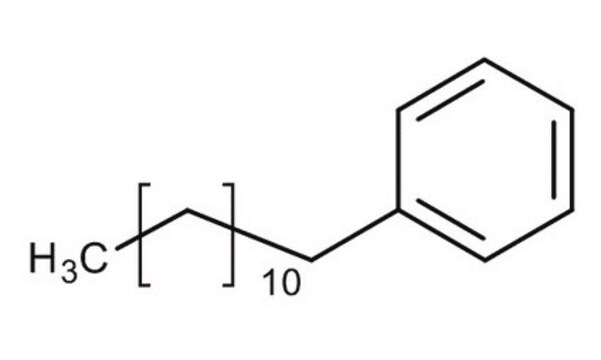90548
Tetrathiafulvalene 7,7,8,8-tetracyanoquinodimethane salt
≥97.0% (CHNS)
Synonym(s):
7,7,8,8-Tetracyanoquinodimethane Tetrathiafulvalene salt, TCNQ-TTF, TTF-TCNQ
Sign Into View Organizational & Contract Pricing
All Photos(1)
About This Item
Empirical Formula (Hill Notation):
C6H4S4 · C12H4N4
CAS Number:
Molecular Weight:
408.54
MDL number:
UNSPSC Code:
26111700
PubChem Substance ID:
NACRES:
NB.61
Recommended Products
grade
for ion-selective electrodes
Quality Level
Assay
≥97.0% (CHNS)
form
solid
mp
~230 °C (dec.)
SMILES string
S1C=CS\C1=C2/SC=CS2.N#C\C(C#N)=C3\C=CC(\C=C3)=C(\C#N)C#N
InChI
1S/C12H4N4.C6H4S4/c13-5-11(6-14)9-1-2-10(4-3-9)12(7-15)8-16;1-2-8-5(7-1)6-9-3-4-10-6/h1-4H;1-4H
InChI key
OIXMVDHMELKBDX-UHFFFAOYSA-N
General description
TTF-TCNQ is an organic metal-like charge transfer complex, which is mostly used as an electrode.
Visit our Sensor Applications portal to learn more.
Application
TTF-TCNQ has been used in sensor fabrication during amperometric lactate biosensor development for qualitative analysis of lactate accumulation in ischemic myocardium patients.
Storage Class Code
11 - Combustible Solids
WGK
WGK 3
Flash Point(F)
Not applicable
Flash Point(C)
Not applicable
Personal Protective Equipment
dust mask type N95 (US), Eyeshields, Gloves
Choose from one of the most recent versions:
Already Own This Product?
Find documentation for the products that you have recently purchased in the Document Library.
Customers Also Viewed
R Kataky et al.
Talanta, 56(3), 451-458 (2008-10-31)
A format for a disposable screen-printed biosensor was investigated for monitoring formaldehyde. The screen-printed sensor format comprised a working electrode (WE) modified with platinised carbon, a new lipophilic tetrathiafulvalene-tetracyanoquinodimethane (TTF-TCNQ) salt as mediator, a plasticised polyurethane membrane (TECOFLEX SG80, PU)
A conducting salt-based amperometric biosensor for measurement of extracellular lactate accumulation in ischemic myocardium.
Marzouk SA
Analytical Chemistry, 69(14), 2646-2652 (1997)
Fariba Mashayekhi Mazar et al.
Advanced materials (Deerfield Beach, Fla.), 31(32), e1901677-e1901677 (2019-06-20)
Untethered actuation is important for robotic devices to achieve autonomous motion, which is typically enabled by using batteries. Using enzymes to provide the required electrical charge is particularly interesting as it will enable direct harvesting of fuel components from a
Seokmin Jeon et al.
ACS nano, 10(8), 7821-7829 (2016-07-28)
Bulk molecular ionic solids exhibit fascinating electronic properties, including electron correlations, phase transitions, and superconducting ground states. In contrast, few of these phenomena have been observed in low-dimensional molecular structures, including thin films, nanoparticles, and molecular blends, not in the
Maxime Leroux et al.
Proceedings of the National Academy of Sciences of the United States of America, 116(22), 10691-10697 (2019-05-16)
With the discovery of charge-density waves (CDWs) in most members of the cuprate high-temperature superconductors, the interplay between superconductivity and CDWs has become a key point in the debate on the origin of high-temperature superconductivity. Some experiments in cuprates point
Our team of scientists has experience in all areas of research including Life Science, Material Science, Chemical Synthesis, Chromatography, Analytical and many others.
Contact Technical Service








![Dipyrazino[2,3-f:2′,3′-h]quinoxaline-2,3,6,7,10,11-hexacarbonitrile 95% (HPLC)](/deepweb/assets/sigmaaldrich/product/structures/151/558/c0e2c95f-5228-4864-a7a5-4b9765a19840/640/c0e2c95f-5228-4864-a7a5-4b9765a19840.png)

